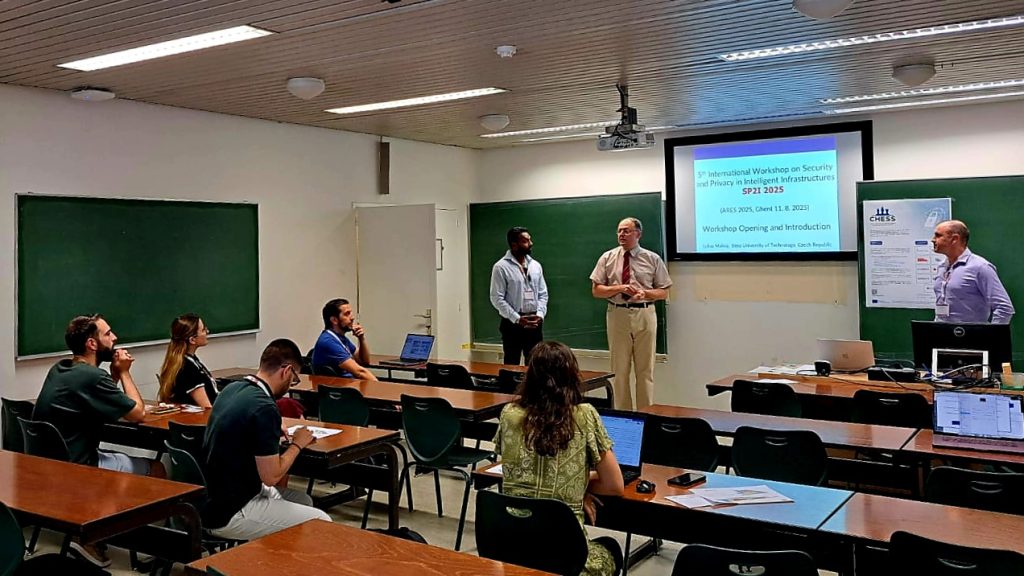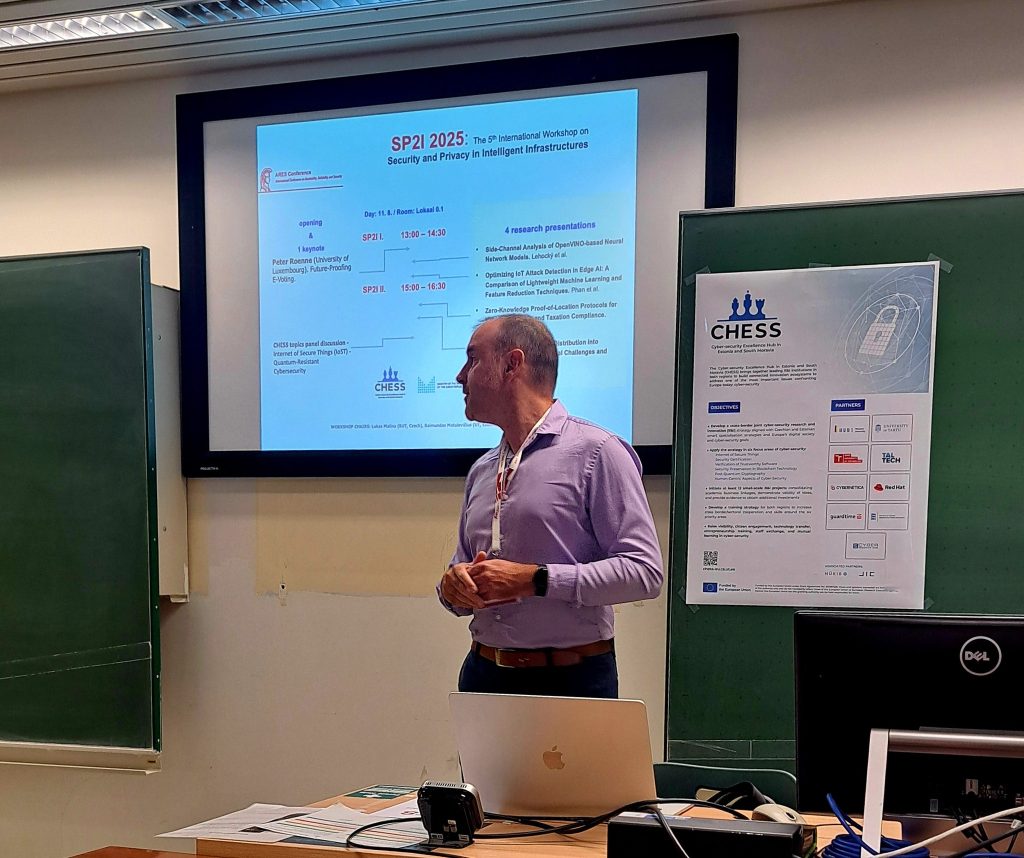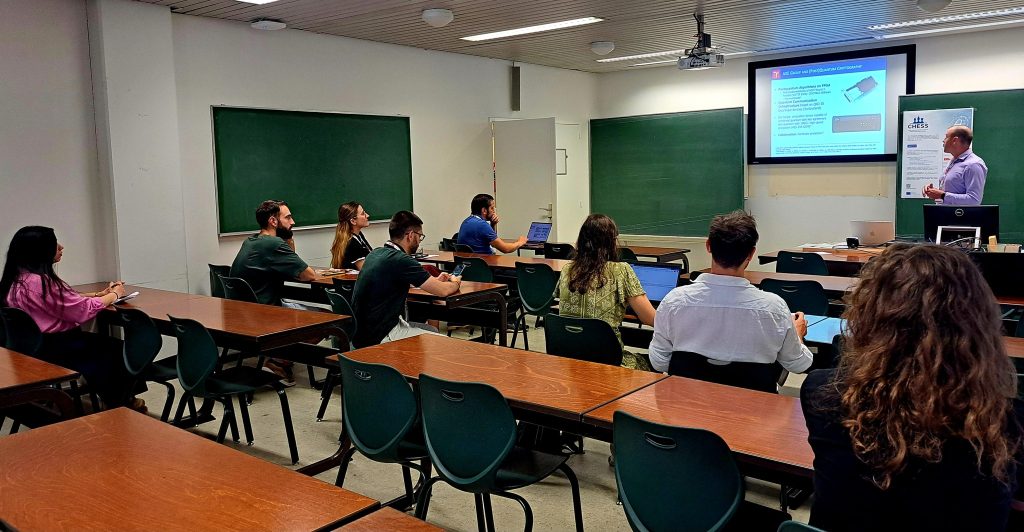- CHESS Cyber-Security Excellence Hub
- SP2I 2025 at ARES2025
- Ghent, Belgium, 11.08.2025
Intelligent infrastructures (IIs) are developed in various domains, including the IoT of vehicles, industrial IoT, eServices, eHealthcare, and SmartCities applications. They aim to provide a higher level of convenience for humanity, but with those promises have come privacy and security issues and concerns.
The workshop on Security and Privacy in Intelligent Infrastructures (SP2I 2025), in conjunction with the ARES2025 conference, aims to discuss the ongoing research efforts in privacy and security in Intelligent Infrastructures. It also served as a forum for relevant research projects to disseminate privacy and security-related results and boost future cooperation.
The SP2I 2025 program included one invited talk and four research presentations. In the invited talk “Future-Proofing E-Voting”, Prof. Peter Roenne highlighted the challenges of designing and developing e-voting solutions considering the quantum and Post-quantum principles.
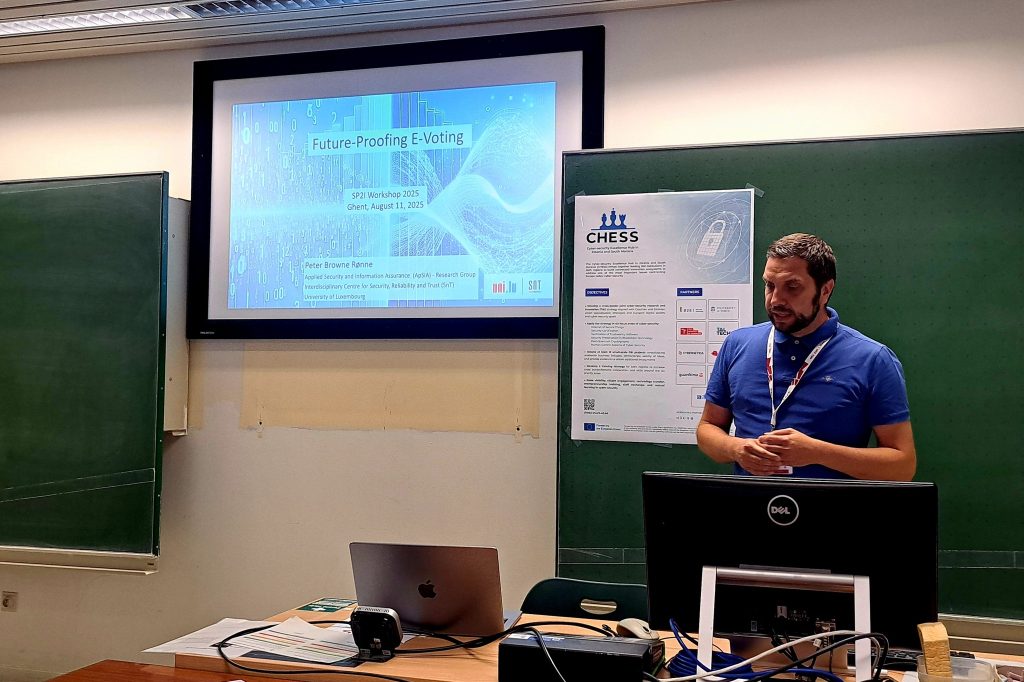
The talk by Xiaolu Hou on “Side-Channel Analysis of OpenVINO-Based Neural Network Models” explained the susceptibility of quantised models implemented in an embedded framework for deploying neural networks on embedded and Edge devices.
DOI: https://doi.org/10.1007/978-3-032-00642-4_18
Lukas Malina discussed machine learning driven cyberattack detection in IoT networks. The study “Optimizing IoT Attack Detection in Edge AI: A Comparison of Lightweight Machine Learning Models and Feature Reduction Techniques” focuses on feature reduction methods to improve Edge AI efficiency.
DOI: https://doi.org/10.1007/978-3-032-00642-4_19
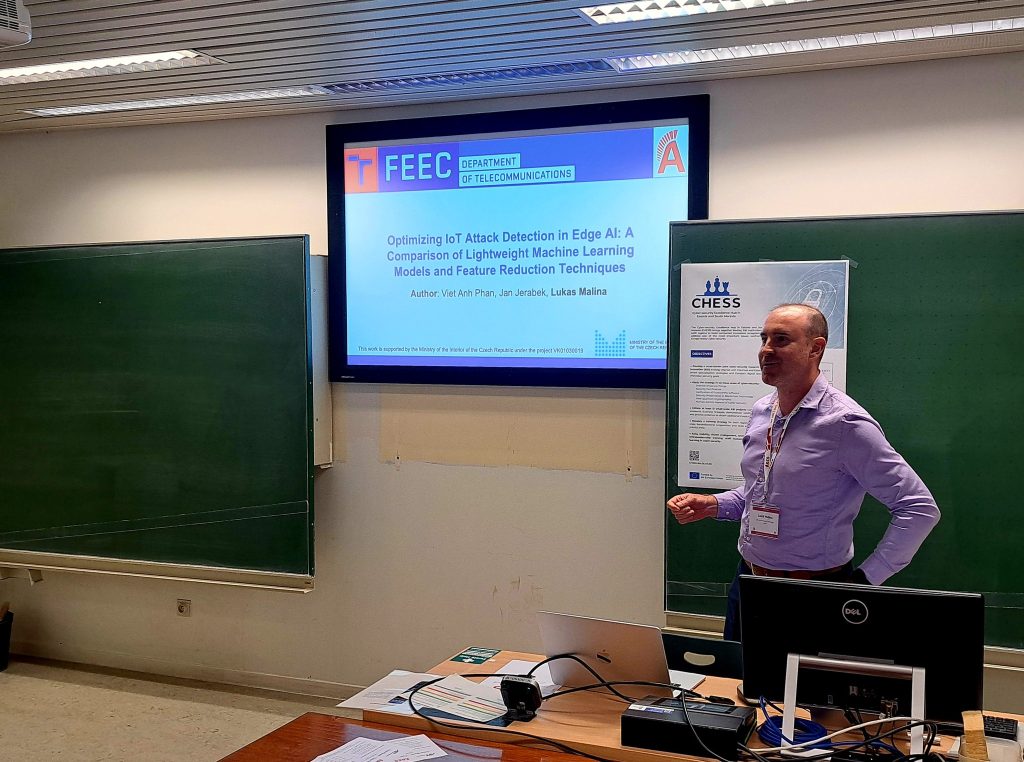
Next, Eduardo Brito presented research on “Zero-Knowledge Proof-of-Location Protocols for Vehicle Subsidies and Taxation Compliance”, where a new set of privacy-preserving mechanisms for verifying compliance with location-based policies for vehicle taxation using Zero-Knowledge Proofs (ZKPs) was described.
DOI: https://doi.org/10.1007/978-3-032-00642-4_20
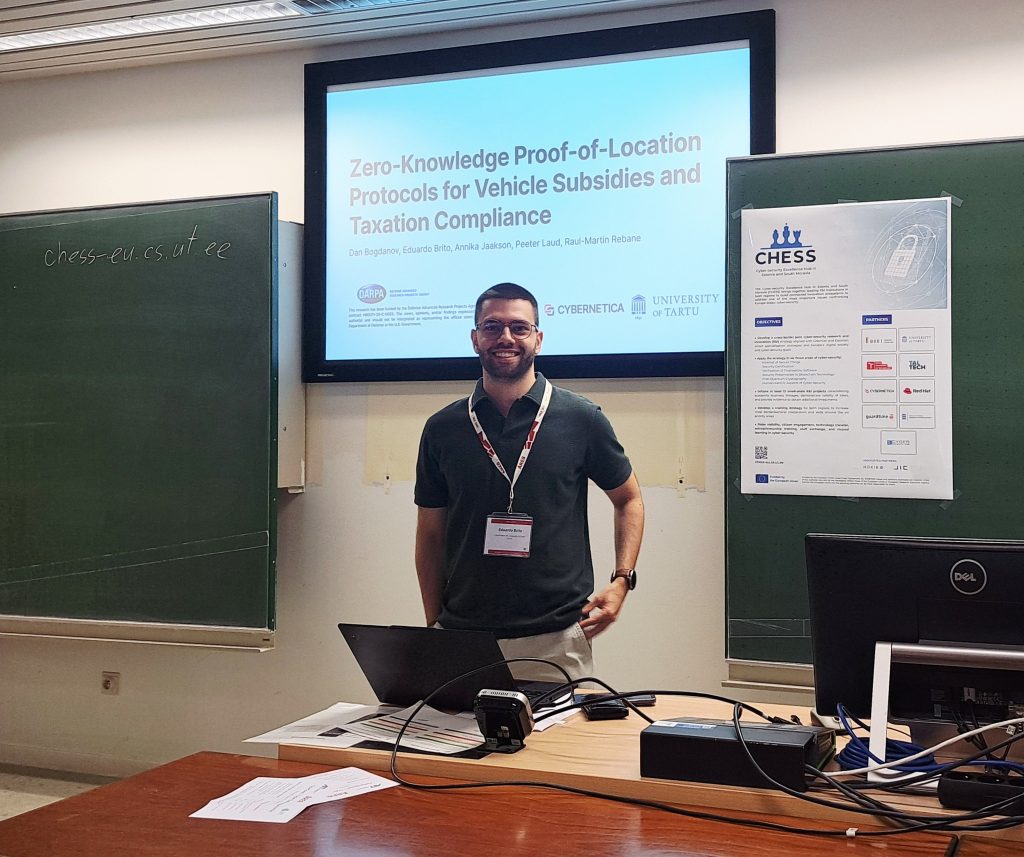
In the talk “Integrating Quantum Key Distribution Into Academic Network: Practical Challenges and Solutions”, Klara Turcanova explored the integration of Coherent One-Way (COW) Quantum Key Distribution (QKD) systems into academic fibre-optic networks.
DOI:https://doi.org/10.1007/978-3-032-00642-4_21
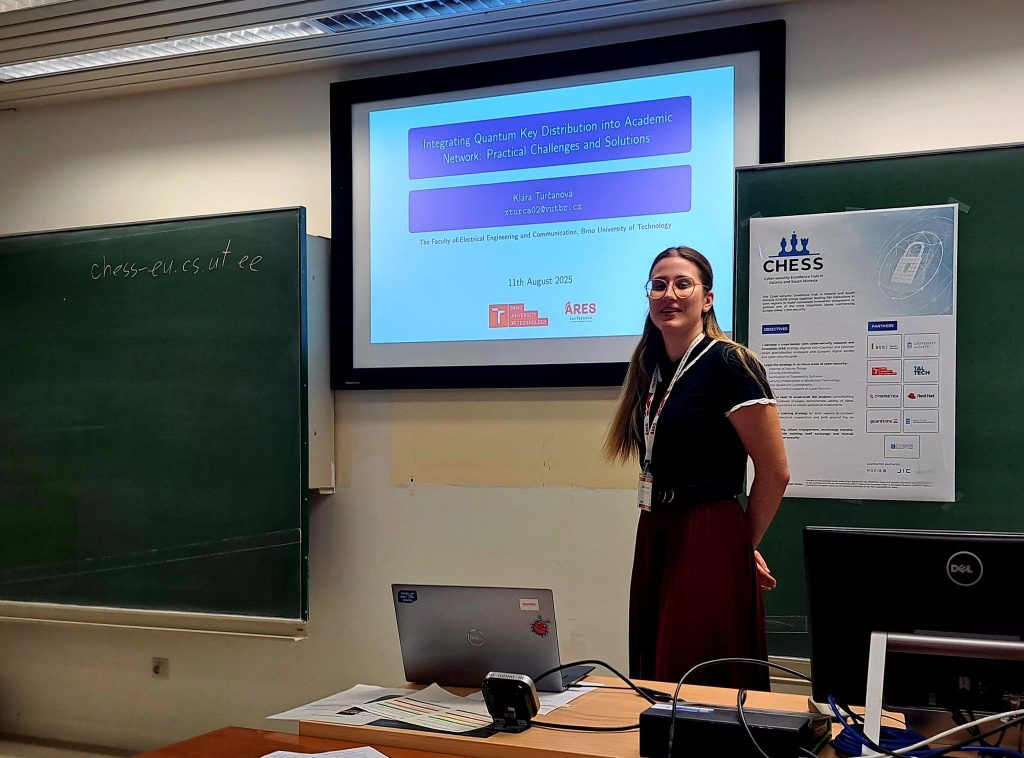
The workshop was attended by approximately 20 researchers interested in intelligent infrastructures’ privacy and security challenges, as well as design, development, and solutions.
SP2I 2025 workshop proceedings at: https://link.springer.com/book/10.1007/978-3-032-00642-4
